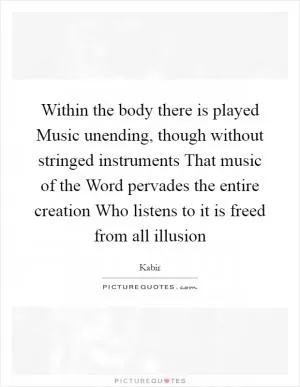Are you looking for the Holy One? I am in the next seat. My shoulder is against yours

Are you looking for the Holy One? I am in the next seat. My shoulder is against yours
Kabir, the 15th-century Indian mystic poet and saint, is known for his profound spiritual teachings that transcend the boundaries of religion and emphasize the unity of all beings. In one of his most famous poems, Kabir asks, "Are you looking for the Holy One? I am in the next seat. My shoulder is against yours." This simple yet profound statement encapsulates the essence of Kabir's teachings and offers a powerful message of unity, love, and interconnectedness.Kabir believed that the divine is not something separate from us, but rather something that is present within each and every one of us. He often spoke of the importance of recognizing the divinity within ourselves and others, and of cultivating a sense of oneness with all of creation. In this particular poem, Kabir is inviting us to look beyond the external trappings of religion and tradition and to recognize the presence of the divine in the here and now, in the simple act of sitting next to another human being.
When Kabir says, "My shoulder is against yours," he is emphasizing the idea of physical proximity as a metaphor for spiritual closeness. By sitting next to someone and feeling their presence against our own, we are reminded of our shared humanity and interconnectedness. In this way, Kabir is urging us to see the divine in each other, to recognize that we are all part of the same universal consciousness, and to treat each other with love, compassion, and respect.
Kabir's teachings are as relevant today as they were centuries ago. In a world that is often divided by religion, politics, and ideology, Kabir's message of unity and love serves as a powerful reminder of our common humanity. By embracing the idea that the Holy One is present in the person sitting next to us, we can begin to break down the barriers that separate us and work towards a more peaceful and harmonious world.












 Friendship Quotes
Friendship Quotes Love Quotes
Love Quotes Life Quotes
Life Quotes Funny Quotes
Funny Quotes Motivational Quotes
Motivational Quotes Inspirational Quotes
Inspirational Quotes